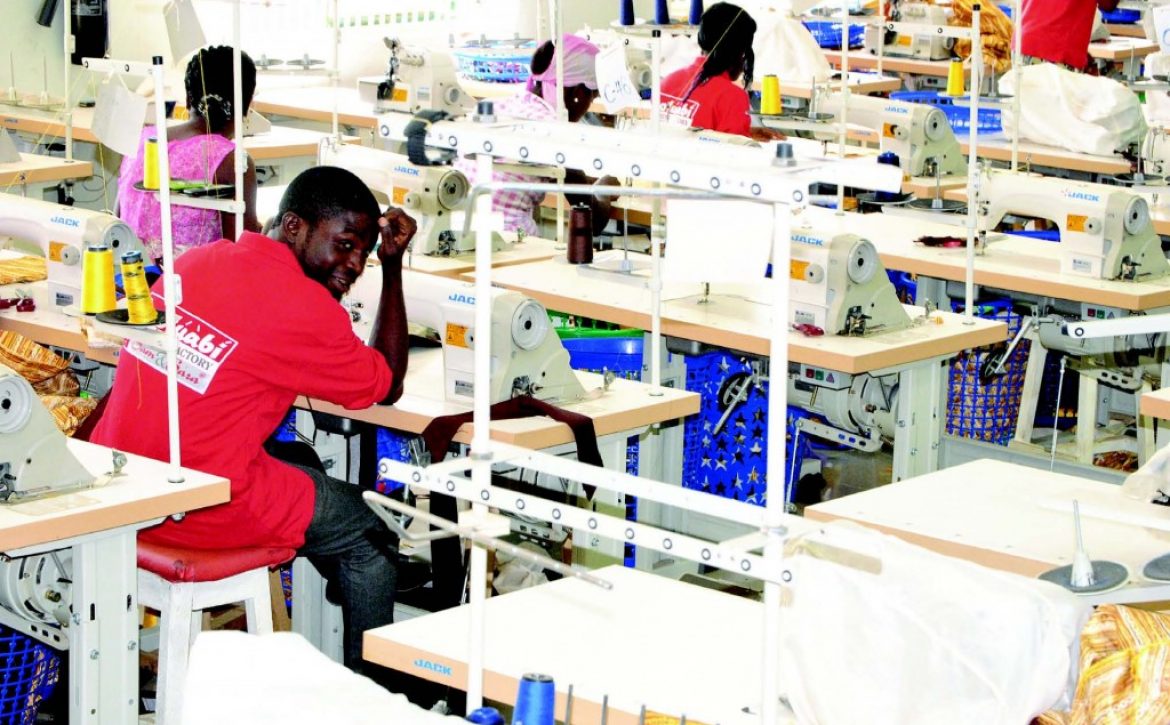
The Ile Ife, Osogbo and Ikire ecstatic campaign crowds have established the massive support Governor Rauf Aregbesola enjoys across Osun. The colour, content and messages that have attended the campaigns so far show how the indigenes appreciate the turn-around of the state by a people-focused government, writes GBENGA FATUROTI, Correspondent, Osogbo.
The Journey to the Source, Ile Ife
The return of the mythical Oranmiyan to Ile Ife, considered as the source of all Yoruba could not have been a strange thing given the well-known Yoruba mythology. Perhaps, this was what made the flag off of the re-election campaigns of Governor Rauf Aregbesola, popularly seen as symbol of the Oranmiyan phenomenon to be seen as somewhat an electrifying event that would be memorable for a long time to come.
Some called it a political fun-fare. Some said it was in celebration of a political figure who symbolises the new thinking and perspective in political re-ordering. Whatever you chose to call it, the Ife Federal Constituency re-election campaign of Governor Rauf Aregbesola brought the Ooni Okunade Sijuwade’s Ile Ife to a standstill on Tuesday May 27, 2014.
The carnival that attended the entry of Ogbeni as he is popularly called has given his supporters the confidence to say that what looks like the only challenge to his re-election, Senator Iyiola Omisore, who hails from the ancient city is really no match for the governor.
The whole town was agog. From the main entry point through the popular Lagere Road down to Enuwa, the palace of His Royal Majesty Oba Okunade Sijuwade, people poured into the street in thousands to welcome the campaign train of the governor.
The first point of call was the palace where Aregbesola was received and regaled in a grand manner typical of the demonstration of Ooni’s majesty.
The significance of Aregbesola’s straight journey to the palace was not lost on the people. The Monarch’s Iwure (royal blessing) and endorsement that followed put paid to all insinuations that given the fact that the Peoples Democratic Party’s candidate is of the Ife stock, the royal father of the city might be tempted to blindly throw his weight behind one of his subjects eyeing the same position.
But not only did the Ooni pray for Aregbesola, his words were believed to be an attestation to the royal support he is offering the governor, whose sterling performance he affirmed.
In his remark, the first class monarch said election is not a do-or-die affairs but only a civil exercise to choose those whom the people want to lead them.
In a passionate prayerful mood that appeared to have jolted the opposition, the royal father had said in Yoruba, “Olorun to fi e s’ibe ko de ni mu e kuro” (meaning God that enthroned you will ensure your continuity in office).
He added: “All you have been doing are not for yourself or for your people. You are striving for the good of the entire Yoruba race, for the country. God will always be with you.”
The Ooni said he had called a meeting of all politicians in the town and cautioned them to conduct themselves in the peaceful manner devoid of bloodshed as he commended Aregbesola for his numerous achievements in all sectors of governance.
The Ooni said: “As royal father to all, I can only tell the politicians to conduct themselves in the accepted manner and play according to the electoral rules. Election is just a routine through which people elect those they want to rule them. Election is not synonymous with bloodshed. This is why I cautioned all politicians to eschew violence before, during and after the election.”
Armed with the royal blessing, Aregbesola’s campaign train proceeded to the campaign ground at the Ile Ife Technical School playground.
Expectedly, commercial activities came to a stop traffic movement slowly wound to a halt. Left, right and centre, people radiated happiness as they saw a leader, who, for close to four years now, has busied himself with how his people would live better and qualitative lives different from the lives of hopelessness they had been subjected to in the years past.
At the campaign ground, speaker after speaker x-rayed the performance of Aregbesola, which they said is uncommon, unrivalled and unarguably unassailable at the moment.
Senator Jide Omoworare, in whose had Omisore had suffered a humiliating defeat in the 2011 National Assembly election, in the Osun East senatorial District and Professor Sola Adeyeye, representing the Osun Central senatorial District, said Omisore was not suited to serve the state.
The lawmakers averred that the job of administering the State I of Osun was enormous and that Omisore is unprepared and lacks the know-how to rule the state.
“Ogbeni Aregbesola is God-sent to the people of Osun. In just a single term of four years, this wonderful man transformed the state positively. The truth of the matter is that Omisore has no mental capacity to govern this developing state.
“As senator, Omisore cannot point to anything beneficial he has done for Ile-Ife not to talk of Osun. What has he brought to his town, his state from his much-touted mainstream politics?” the lawmaker queried as they advised the people to cast their votes wisely by re-electing Aregbesola.
According to the governor, seeking re-election is to perfect the establishment of genuine and credible leadership that only aims at delivery of service to the people in the state.
He also remembered the 12 people, who were killed in their bid to prevent rigging in their constituencies saying never again would violence against the people be allowed in any part of Osun.
Aregbesola’s emphasis against violence was understandable. Not only were members of his party killed in 2007, no fewer than another six were brutally murdered on the eve of the National Assembly election in 2011.
For a man who hinges his bid for second term on his scorecard for the first opportunity to serve, Aregbesola reeled out his administration’s achievements in the Ife Federal Constituency thus:
“We have touched lives in all facets of human endeavours. In the constituency we have constructed more the 50 km of intra-city roads; built six new schools, several boreholes, distributed 1, 473 pieces of Opon Imo tablets to high school students.
“This is in addition to ensuring adequate security by providing necessary equipment to security agencies, provision of health care facilities as well as monthly welfare package for vulnerable elders under the Agba Osun Scheme.
“All these we have done and are doing. While we want a second term is to consolidate on all these achievements as well as lay down a solid foundation for credible governance.”
The Serubawon Factor
Undoubtedly, the intimidating crowd in Ife seemed to have sent signals to many quarters. Since then, the wave of defections to the APC has increased. While many are still believed to be on their way perfecting their defection strategies, former Governor of the State, Senator Isiaka Adeleke formally boosted the rank of the APC with his defection on Saturday May 31, when he led thousands of his supporters to the APC.
Adeleke was received into the APC at a grand reception at the state capital where Governor Aregbesola and his Ekiti counterpart, Dr. Kayode Fayemi and then Interim National Chairman of the party, Chief Bisi Akande were on hand to receive the new political bride.
Addressing the gathering at the popular Nelson Mandela Freedom Square, Osogbo, Adeleke said he dumped the Peoples Democratic Party (PDP) because he does not want a mediocre to take over from a performing governor so as to avoid dragging the hand of the clock of progress backward.
He said: “I am happy to be with the progressive. I was a governor under Social Democratic Party (SDP), which was a progressive party. I was involved in the struggle for the actualisation of the June 12, 1993 presidential election. I cannot work for a thug to become the next governor of the state.”
Campaigns or Dodo Ikire carnival?
It was this streak that blazed down to Ikire on Tuesday June 3 when the campaign train berthed at Isokan/Ayedade/Irewole Federal Constituency.
As is the tradition, the Governor first paid homage to the traditional ruler of the town, Akire of Ikire, His Royal Highness, Oba Olatunde Falabi, who commended the governor for what he described as a revolutionary touch in the state.
Oba Falabi said the people did not need a soothsayer to tell them that the government of APC has brought huge development to the state in the past three and half years.
Falabi would not see any need to change what he called winning team in the affairs of Osun.
“You have done very well in your first term. We did not need another person to tell us that. We can see the development with our very eyes. We can see the transformation of the state all around us. In fact, you have been doing the job as if your life depends on it. With this achievement, your second term is guaranteed,” Akire said.
A leader of the party, also one time PDP chieftain and Chief of Staff to Oyinlola before dumping the party for APC, Elder Peter Babalola, in his campaign speech said PDP, in its seven and half years in government performed abysmally.
Babalola averred that the poor performance of PDP was exposed when in just a single term Aregbesola changed the face of the state.
He noted that his own constituency, Isokan-Irewole-Ayedaade Federal constituency benefitted immensely from Aregbesola’s positive transformation saying.
he observed: “Today, my constituency is better than when the PDP and I were in power. In fact, government projects in my federal constituency are countless and the people can attest to that. So we have benefitted from APC government of Aregbesola.”
Roads leading to the campaign ground came out in different colours as multiple social and political groups, professional groups, artisans resplendent in colourful attires lined the route to add glamour to the scene.
On the left side of the route you would see an aged woman shaking her fragile frame to the rhythm of entertaining beats. At the other side of the road, you would see an excited baby at the back his mother looking innocently but quite conscious something unusual was happening in the environment. Down another road you would see a bike rider displaying his dexterity and mastery of the machine on the road. Another time you would a young man in acrobatic display all in excited display of love for the man they are convinced has brought meaning to their lives.
The road show train later arrived at St. John’s Primary School playground Ikire, which had already been filled to the brim.
It was this gathering that Senator Isiaka Adeleke, addressed, telling them to allow the incumbent governor to continue his positive transformations of the state.
Adeleke said that Aregbesola has performed excellently in the state thus deserving to consolidate and finish with what he has started.
He called on members of All Progressives Congress (APC) and citizens to vote for continuity come August 9, saying it will be wise to show the candidate of the People’s Democratic Party that Osun’s governorship seat is not meant for people bereft of idea.
“I want to plead with our members and Osun people to use their vote to bring back Aregbesola because he has worked tremendously for the development of Osun, you should make sure that we score 80 per cent of the votes.
“If we are able to do this, we will be killing an ant with a sledge hammer,” Adeleke said.
He averred that with present government’s developmental stride in the state, if election holds tomorrow, Aregbesola’s victory is guaranteed, saying Senator Omisore is only grandstanding.
While speaking, Aregbesola said his achievement in his first term in office will be dwarfed by that of second term if elected.
The governor said they should expect more than the 88 boreholes which had been sunk in the federal constituency; 2,299 Opon Imo distributed to secondary schools in this axis and the beautification of Asejire to Gbongan on Ibadan-Ife Expressway.
Aregbesola also listed 5 newly built ultra-modern school buildings; intra and inter road networks totalling 60 km among other things in Isokan-Ayedaade-Irewole Federal constituency.
In his words, “We believe, and are of the opinion that power is responsibility. But PDP believe that power has no responsibility. That is the difference between the two of us.
as the people went hyste Ila Orangun also stood Still
Having gone to Ife and IKire, it appeared that the Federal Constituencies were poised to outdo one another in the mobilization of the supporters. When the campaign train of Aregbesola arrived in Ila-Orangun, the crowd that received him and his team appeared to have dwarfed those of Ife and Ikire.
Perhaps, being the homestead of the Interim National Chairman of the APC, Chief Bisi Akande (as at that day), it was not unexpected that a tumultuous crowd came forward to assure Aregbesola of his second term in office.
For those who witnessed the maiden campaign at the source of Yoruba Land, Ile-Ife and that of Ikire Federal constituency, they would all agree that Ila-Orangun went extra miles in their demonstration of love for the governor.
The Bisi Akande factor was one that brought the crowd out. Historically, Orangun of Ila, according to Yoruba history, is the first born of Oranmiyan. With Aregbesola seen as the symbol of Oranmiyan, there was no other place that would be ideal for the Oranmiyan forbears to conflate than Ila-Orangun. This was the second major factor that added pep to the crowd in Ila Orangun.
Ila was a beehive of activities as the people trooped out in thousands to give their governor a rousing welcome.
From the entrance road leading down into the heart of the ancient town, people – young and old, men and women, indigenes and non-indigenes, APC members and sympathisers all came out en masse.
The arrival at the palace of Orangun of Ila, His Royal Highness, Oba Abdulwahab Adedotun, was in grand style as human and vehicular traffic freely mingled to form a long and unbroken cavalcade on which the Governor rode into the waiting arms of traditional rulers and their chiefs who were all eager to offer their blessings.
These included the Oba Adedokun Abolarin, the Orangun of Oke-Ila; Oba Samuel Oladosu Idowu, Akesin of Ora Igbomina; Oba Isaac Adetunlurese, Onirun of Oke-Irun; Oba (Dr.) Taiwo Adesoji, Owaloja of Kajola Ajaba.
The roll call also included the Oba Sikiru Adeseun, Oluresi of Iresi; Oba A. A. Oladipo, Edigbo of Edemosi; Oba Samuel Bamidele Oyediran, Eleripa of Eripa; Oba Rasaq Abidoye Adeleke, Owa Magbon of Ila Magbon and Adeniran Ayepola, and the representative of Owa of Igbajo. All these royal fathers had confirmed what they called unprecedented change in the affairs of Osun since the arrival of the incumbent governor.
Then the Orangun of Ila, launched into the royal blessing after which prayers were also offered in Christian, Islamic and traditional modes.
Armed with the royal blessings again, the lion roared into town! Ogbeni came out to the waiting hands of the now impatient crowd, which had formed an unending line at both sides of the road, chanting, singing, dancing and with re-invigorating gusto, waiving their flags of APC and broom.
The crowd was uncontrollable, moving energetically along the Ajegunle to Ora Road and on and on to Ila-Orangun City Stadium, the venue of the campaign.
Akande, while speaking, described the crowd as uncommon and an unthinkable assemblage of people.
He described Aregbesola as a unique leader, who promises and delivers on those promises.
Chief Akande said Aregbesola is a God-sent to the State of Osun to come and place it on an enviable height.
The former governor of the state averred that most of the laudable programmes of Aregbesola sometimes look impracticable. “But he has demonstrated to us through his political sagacity that they, in actual fact, are achievable,” said the former Interim National Chairman of the APC.
In a way Aregbesola’s previous saying that his opponent from the PDP would be an impeached deputy governor facing four governors was gradually coming to pass. In Ila, at least, three of the governors (Aregbesola, Akande and Adeleke) were on hand at the same campaign ground to send the message home that the candidate of the PDP or any other candidate has no chance in the August 9 poll.
He rebutted the rumour making the round that he collected money before decamping to APC, saying “I am not rich, but I am not also hungry.”
For Adeleke, it was an opportunity again to debunk earlier allegation that he was induced by the APC to deplete the ranks of the PDP in the state.
It was also an opportunity for the Deputy Governor, Otunba Grace Titi Laoye-Tomori, to describe as unsubstantiated claim by the opposition that Governor Aregbesola plans to retrench workers immediately after he secures his mandate for second term.
Laoye-Tomori said there is no government today in the country that is more workers’ friendly than the government of Aregbesola.
Logically, the deputy governor said, it does not add up for a government that is recruiting teachers and others in the state because of acute shortage in personnel in some critical areas, to at the same time conceive the idea of downsizing.
The Deputy Governor averred that government has employed more than 10, 000 teachers and 3, 500 women for the O’Meal programme more than any government in the history of the state.
She said, “This government has no plan to retrench anybody. The rumour is emanating from opposition, which did nothing when it was in power.
“This is a cheap lie and our people can read in between the lines that the opposition has failed in the state.”
Characteristic of his appearances in Ile Ife and Ikire, Aregbesola also highlighted some of the successes his administration has recorded in the area to the admiration of the people.
“We have completed the rural electrification in Idi-Omo, Osoro/Idoka (Boluwaduro Local Government); Alagbede and Secretariat Area (Ila Local Government); Igbajo/Oke Irun; Sawmill Area, Ora (Ifedayo Local Government), reinforcement of Osogbo-Ila 33KVA feeder (in progress).
“We have repaired 200KVA transformers in Edemosi and Ila Local Government constructed a block of three classrooms with furniture and town hall in Faje Obalogbon in and kajola –Ajaba in Ila-Orangun; primary health centre and town hall with equipment in Idi-Awewe and Gaa Fulani in Ifedayo Local Government.
“We also distributed N1.8 million interest-free loans to women; repaired 45 non-functioning hand-pump boreholes and provided75 hand pump boreholes in Ifedayo.
“We have constructed 26.12 km of roads in Ila/Boluwaduro/Ifedayo Federal constituency and distributed 845 pieces of Opon Imo in 11 schools in the federal constituency to mention but few,” Aregbesola said.
The rallies expected to take the governor to all nooks of the state are meant to showcase the goodies that the journey of the last three and a half years has brought to the people. Each campaign is expected to bring up messages of hopes as other parts of the state get ready to receive the campaigns train.
DAILY INDEPENDENT



















































